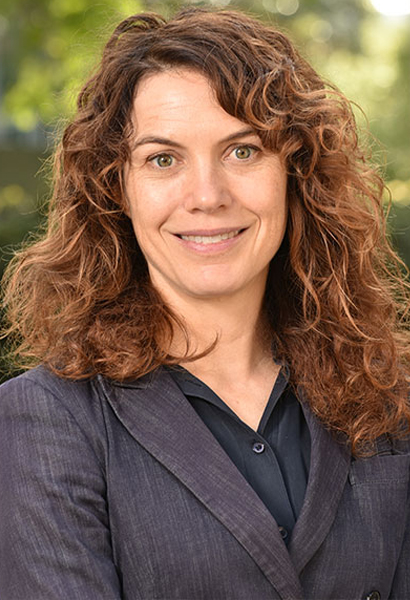

Specialty: Physics
Major Contributions:
Principle Investigator, Rowat Lab
Founder, UCLA Science & Food
3.141592653589793.
That’s just the first sixteen digits of pi, an irrational number that goes on infinitely without repeating any pattern. The ratio of the circumference of a circle to its diameter continues to capture the imagination of both mathematicians and the general public. So much so that every year on March 14th, many people around the world celebrate Pi Day with classroom activities, events, and of course, lots and lots of delicious pie.
UCLA professor Amy Rowat uses those tasty pies in her lectures on biology and physiology, including a class where she and her students delved deep into the science of an American favorite, apple pie. Their results were published in the New York Times. It includes how the Maillard reaction can create a browner and tastier crust, why butter choice matters, and that day old pie might taste even better.
Rowat began using a scientific approach to food when she was a child. She considered culinary school, but ended up majoring in physics and earning a doctorate from University of Southern Denmark. Her twin fascinations with food and science aren’t just applied to pastries. She also believes that food science helps us to understand cancer cells. She uses food to explain how different molecular makeups create shape and deformability.
By studying the textures of cells, Rowat’s research lab looks at how the deformability of a cell can indicate its health. They have found evidence that more invasive cancer cells are more deformable or softer than normal cells. This is important because it is the deformability of those cancer cells that can affect how the disease spreads or metastasizes.
As an associate professor of biophysics at UCLA she heads a team that studies the mechanical properties of single cells. Beyond that as the founder and director of Science and Food, a non-profit organization she aims to use food to introduce complex topics in physics and chemistry to the public. For her innovative research and teaching methods she has been recognized many times over including the National Science Foundation BRITE Fellow Award in 2022.
Written by Mary Ratliff
Sources:
Using Science to Craft the Perfect Pie
The Molecules We Eat: Amy Rowat at TEDxUCLA (YouTube)
See Also:
10 More Things You Should Know About Pie
Pie Sci: A Few Questions for a Leading Pie Scientist
Amy Rowat: Exploring Soft-Matter Physics from Cell Nucleus to Flaky Pie Crust
